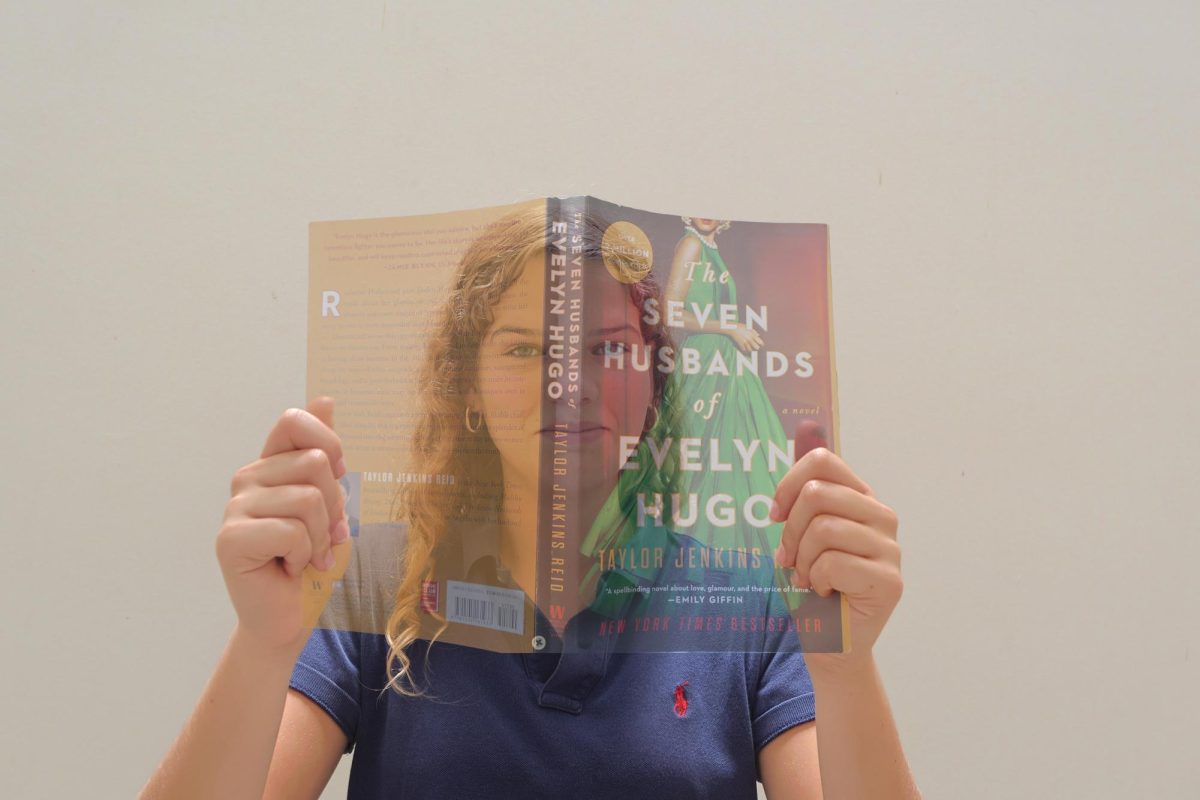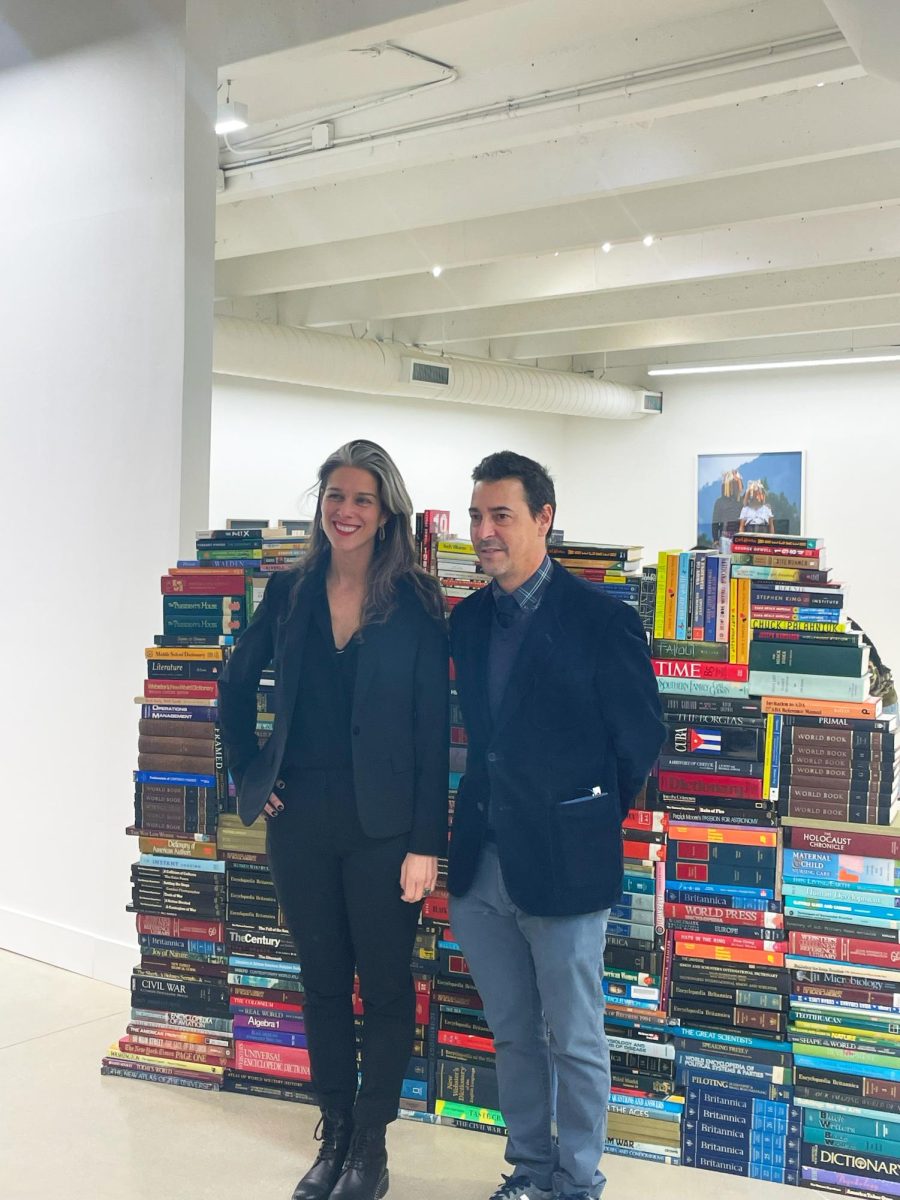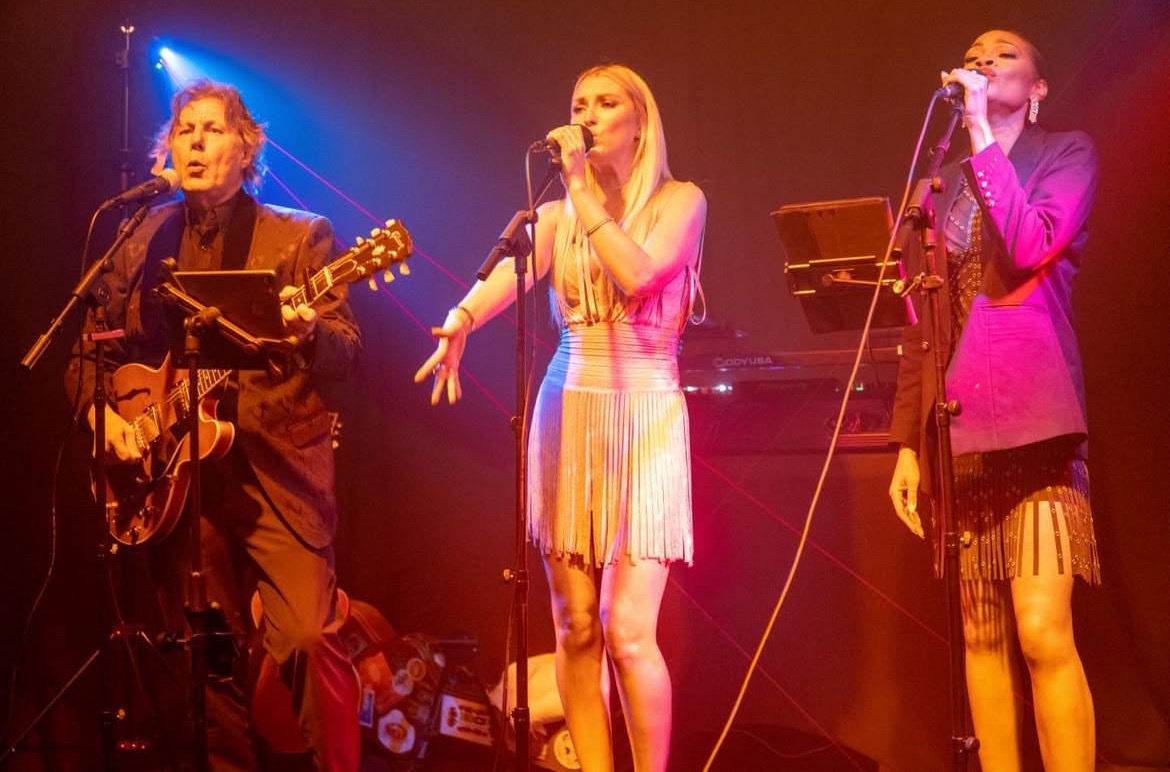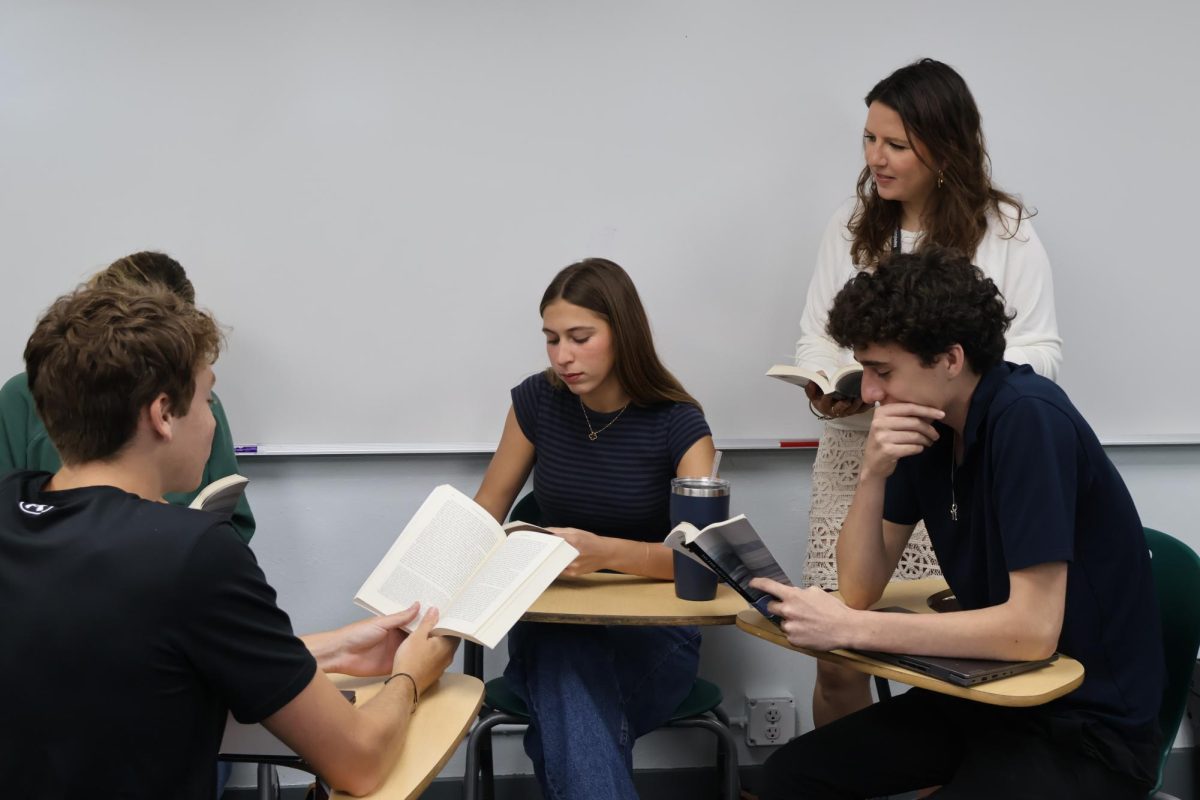“The Seven Husbands of Evelyn Hugo” by Taylor Jenkins Reid is a story about a glamorous woman and the seven different men she had married—or so I had assumed prior to reading it. However, as I turned the pages, I discovered a much deeper and more emotional narrative about how even those who appear to be perfect in so many ways may actually be struggling in their own skin. Beneath the bold title lies a powerful exploration of identity, gradually revealed in ways the reader may not even notice at first.
The novel follows a legendary Hollywood actress, Evelyn Hugo as she recounts her infamous life story— and her seven marriages—to an underground magazine reporter, Monique Grant. Structured as a memoir framed by present day interviews, the novel weaves between Evelyn’s glorious past and Monique’s unfolding answers. The novel offers a deeply emotional, fast-paced reading experience that blends old Hollywood allure with sharp, character-driven drama.
Evelyn Hugo is portrayed as a strong, independent and successful woman, but underneath that image is someone simply trying to survive—protecting both her reputation and the people she loves. As the story unfolds, we learn that Evelyn, who self-identifies as a bisexual, believes that the only way to truly insulate and protect her reputation is by marrying a series of men. Despite her deep love for Celia St. James, Evelyn feels that the only way to survive in the Hollywood spotlight of the 1960s is to completely hide her true self. She uses her body and femininity as tools to build the public image of a seductive “sex symbol” meant to attract male attention, when the only person she truly loves is a woman. While Evelyn projects confidence and control, claiming to know exactly who she is, I saw a woman who lived in fear of the public perception of her true identity. She’s featured in countless newspapers, talked about constantly, and admired by millions—yet very few people know the real Evelyn.
“She’s saying, ‘You guys put me on a pedestal for so long, but you don’t know who I truly am,’” said Matilda Barrack ’27.
One could argue that Evelyn set herself up for this by carefully curating her image. But if any of those journalists or fans had tried to understand the real Evelyn Hugo, they might have seen that behind her fame was a woman silently holding onto a painful, hidden truth.
It’s almost ironic that no one in the novel ever considers the possibility that Evelyn’s seven marriages might be part of something much bigger. If you really think about it, is marrying seven different men something a person does without a deeper reason? Unless, of course, you’re Elizabeth Taylor, famously holding strong with eight marriages.
Still, I found it incredible that no one in the novel seems to question Evelyn’s choices or acknowledge how unusual her story really is. It feels like each husband is a costume, a carefully chosen mask that allows her to step into a new persona. Juliana Hommen ’27, a fellow reader of the novel, observed that Evelyn fakes everything, essentially manipulating society.
“All of her relationships, the whole time she was doing that, she was just trying to cover up that she was gay, she was trying to hide who she actually is,” Hommen said.
And that brings us to the central question: Who is Evelyn Hugo, really? Some might argue she is a bold, powerful woman who manages to outsmart everyone. But others might say she’s simply afraid—afraid that if her truth came out, she wouldn’t be accepted. Maybe all she ever truly wants is to be seen and loved for who she really is.
To me, Evelyn Hugo is just a teenager trying to survive high school. During my experience with the book, I kept searching for someone for her to relate to. I looked at celebrities, influencers—anyone who might resemble Evelyn—but I couldn’t find a real connection. Then I realized: the answer was right in front of me all along. Evelyn Hugo represents every high school student just trying to get by. We’re all trying to figure out which “stereotype” we belong to, and often, the one we want isn’t the one we fit into.
The pressure of figuring out who we are has become such a huge part of teenage life that it can feel impossible to choose what we truly want. Whether it’s performing on stage, excelling academically, or succeeding on the court or field, there are so many paths—and we shouldn’t feel like we have to choose just one. Being number one on the field does not mean you cannot also be a top student in the classroom. Understanding calculus, chemistry, or the state of the world shouldn’t be seen as embarrassing. Teenagers are constantly told about the importance of acceptance, but the truth is, we often struggle to accept ourselves.
It is crucial for teenagers to experience the journey of this book because it shows how complex and painful it can be for people to live authentically. Through Evelyn’s story, readers see that many people, even those with glamorous lives, struggle privately with identity, love, and acceptance. Evelyn hides parts of herself for survival in a harsh, judgmental world, reminding young readers that showing your true self isn’t always simple or safe. The novel reminds us that behind every person’s public image, there might be hidden battles and a need for belonging. By witnessing Evelyn’s sacrifices and heartbreaks, we can develop greater empathy and realize that everyone deserves the freedom to be who they are.
From Evelyn Hugo, I’ve learned that acceptance isn’t just about others—it starts with us.







